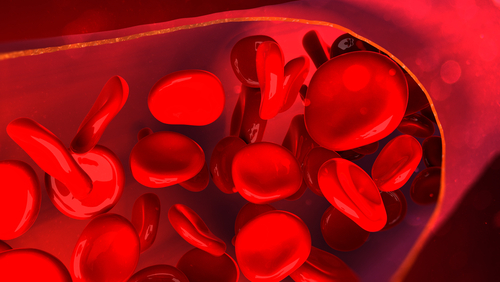SPK-9001 Boosts Clotting Factor, Cuts Hemophilia B Bleeding Episodes, Study Shows
Written by |

All of the hemophilia B patients in an ongoing Phase 1/2 clinical trial of SPK-9001 experienced clotting-factor increases and reductions in bleeding episodes, according to the therapy’s maker, Spark Therapeutics.
University of Pennsylvania medical researcher Adam Cuker will present the updated preliminary results today at the Hemostasis and Thrombosis Research Society (HTRS) 2017 Scientific Symposium in Scottsdale, Arizona. Cuker is an assistant professor at Penn’s Perelman School of Medicine and a clinical investigator at the Children’s Hospital of Philadelphia.
Hemophilia B patients are deficient in clotting protein factor IX, which in about a third of cases results from spontaneous mutation of the factor IX gene. Standard treatment for the problem is protein replacement therapy. This involves intravenous infusions of factor IX to prevent and control bleeding episodes, which, if untreated, can become life-threatening.
SPK-9001 is a novel, investigational, bio-engineered viral vector that helps the body produce factor IX. The university and Pfizer are collaborating on the development of SPK-9001 under the SPK-FIX program, which is aimed at developing gene therapy approaches for hemophilia B.
The ongoing clinical trial (NCT02484092) involves 10 participants who received a single administration of SPK-9001. All participants stopped receiving regular factor IX infusions before the study began.
SPK-9001 reduced patients’ bleeding rate by 96 percent, compared with before treatment began. The mean was 9.2 annual bleeding episodes before treatment, and 0.39 afterward. The therapy also decreased patients’ infusion rate by 99 percent, from a mean of 68.5 annual infusions to 0.98.
Nine of the 10 participants have not needed factor IX concentrates to prevent or control bleeding episodes since their treatment began. The single exception is a patient with serious joint disease who gave himself preventive infusions for persistent knee pain. Patients have reported no serious adverse events.
Two of the 10 participants had an increase in liver enzymes or a decline in factor IX activity. This may have stemmed from an immune reaction to the vector capsid, or protective protein coating, researchers said.
When the two patients received oral corticosteroids to deal with these problems, their alanine aminotransferase levels — a marker of liver injury — returned to normal.
Interestingly, the factor IX activity of one patient has remained stable at around 15 percent more than nine weeks after corticosteroid treatment. The other participant showed an activity level between 70 and 80 percent after treatment.
“The additional preliminary data continue to support our initial observations that a single intravenous administration of SPK-9001 has resulted in consistent and sustained levels of factor IX activity for trial participants,” Katherine A. High, MD, president and chief scientific officer at Spark, said in a press release.
“Notably, all participants to date have consistently achieved our targeted therapeutic range of FIX activity. As we continue to glean more insights from these preliminary data, our analysis suggests that a tapering course of oral corticosteroids has been well-tolerated and may help control potential capsid immune responses following SPK-9001 infusion.”


